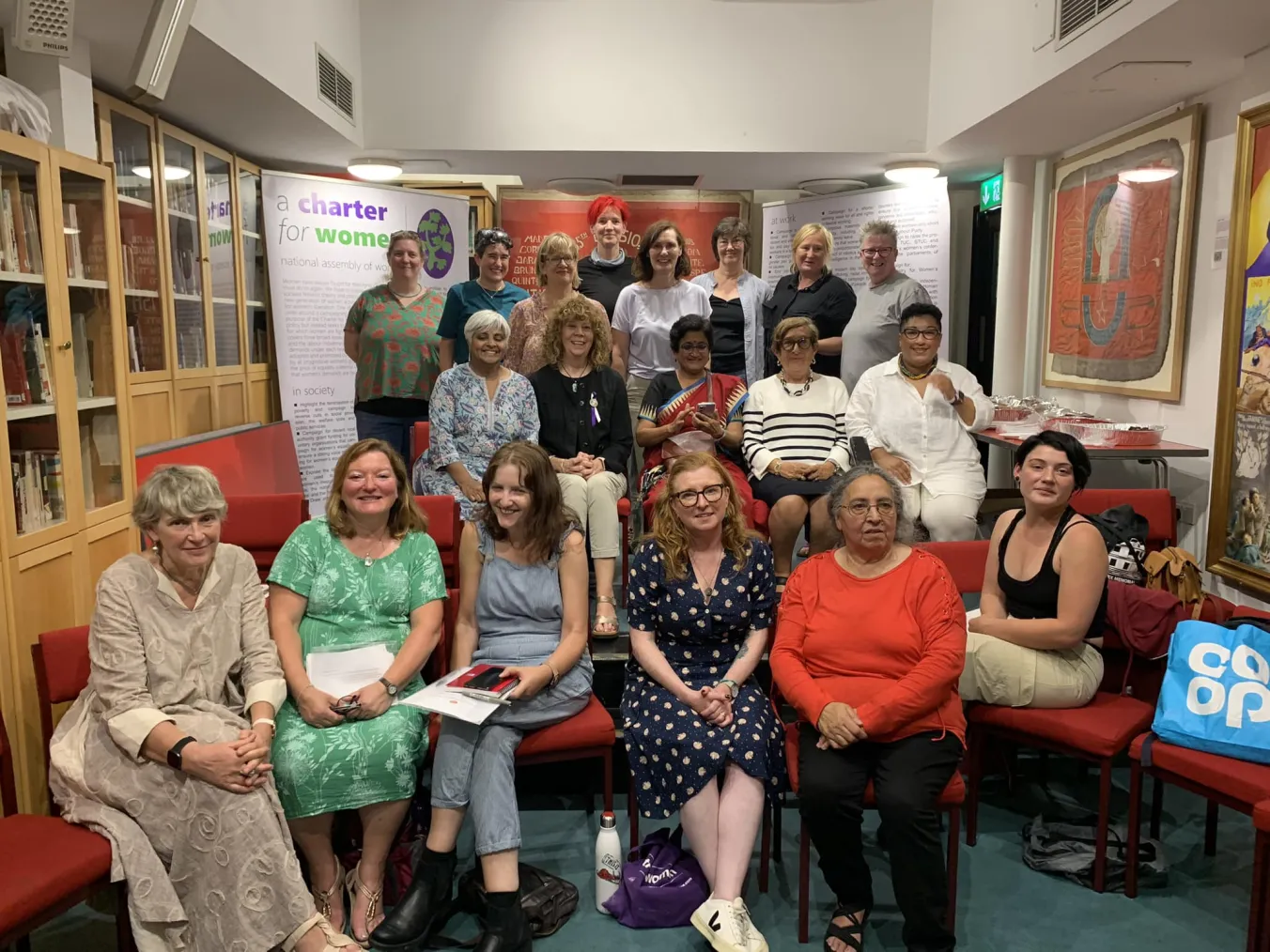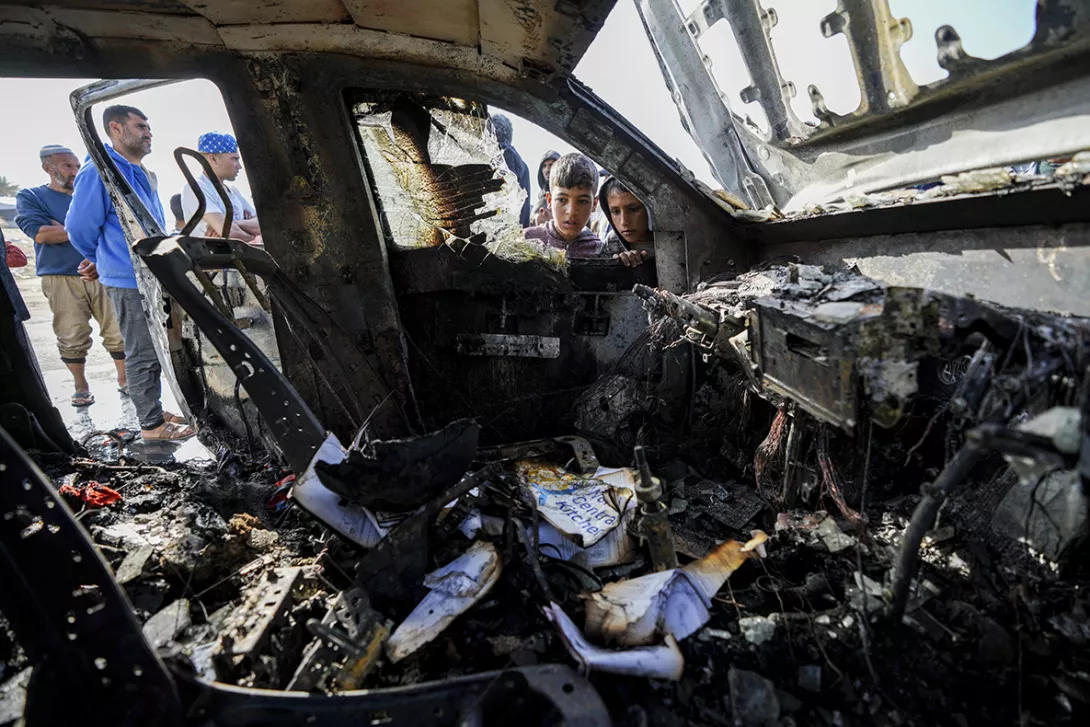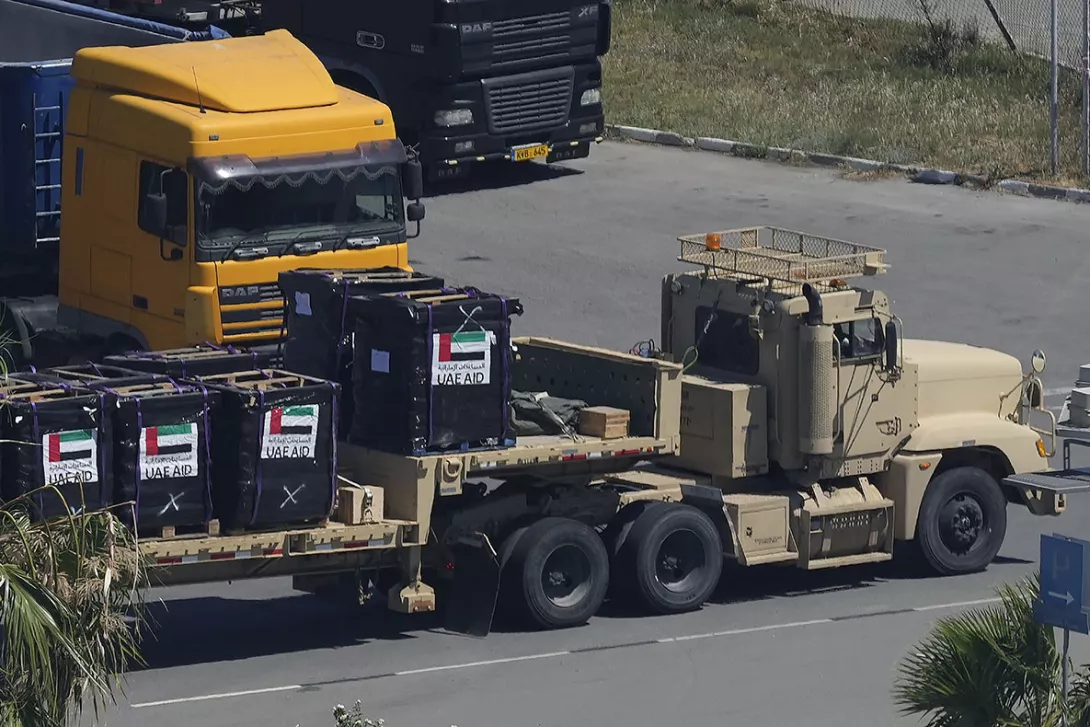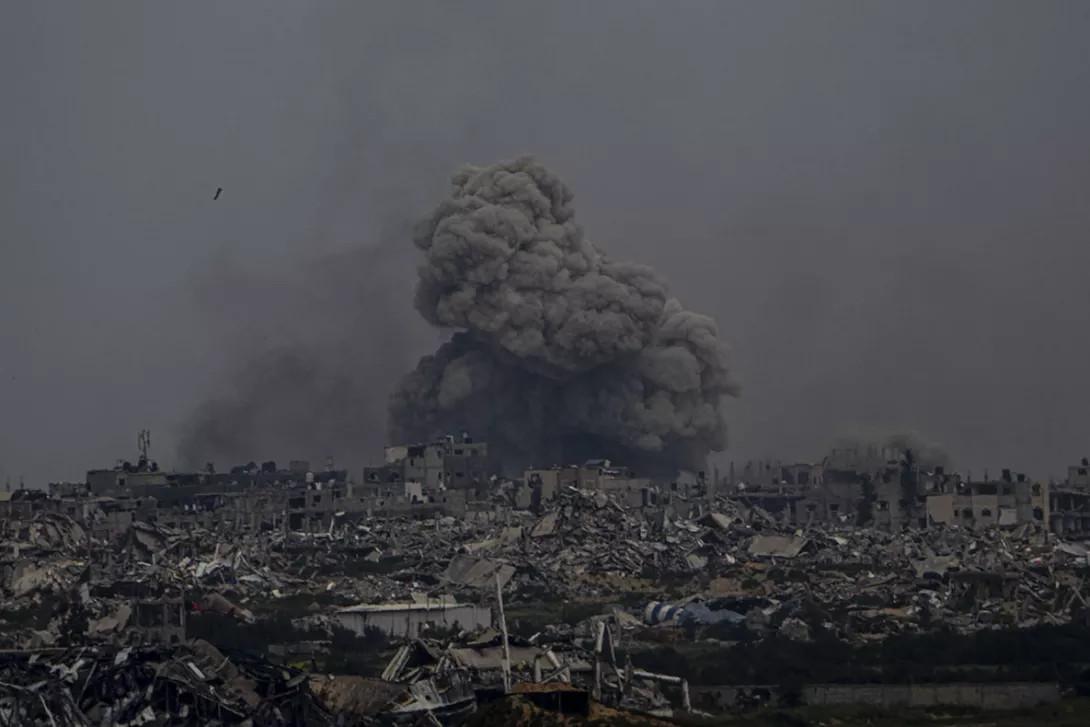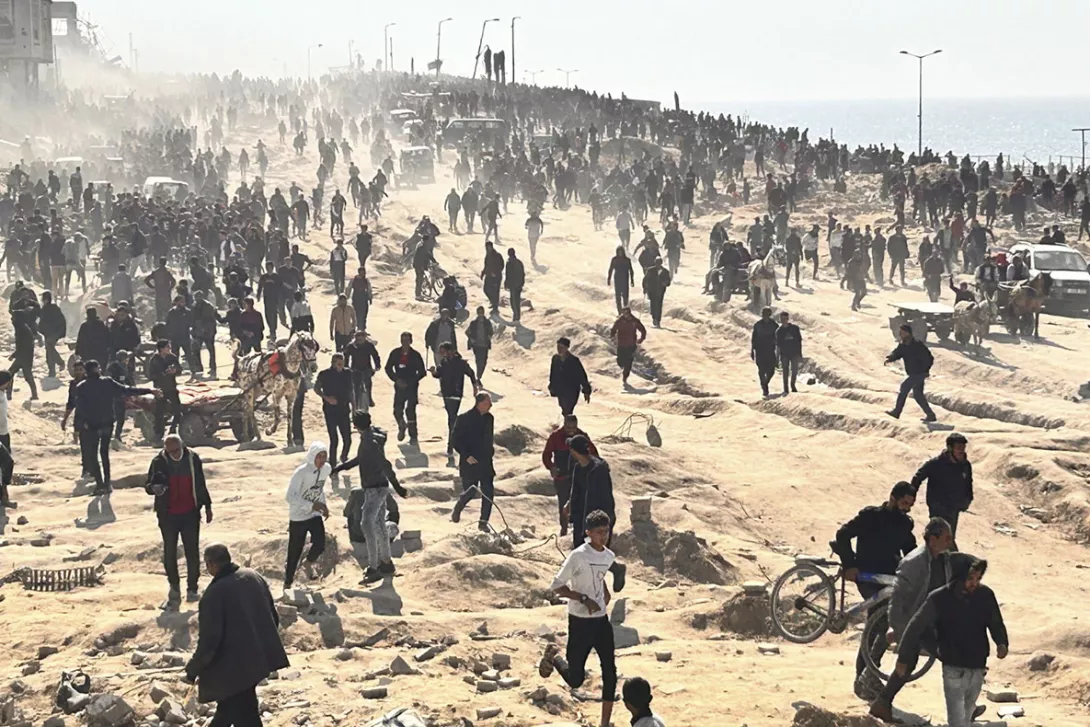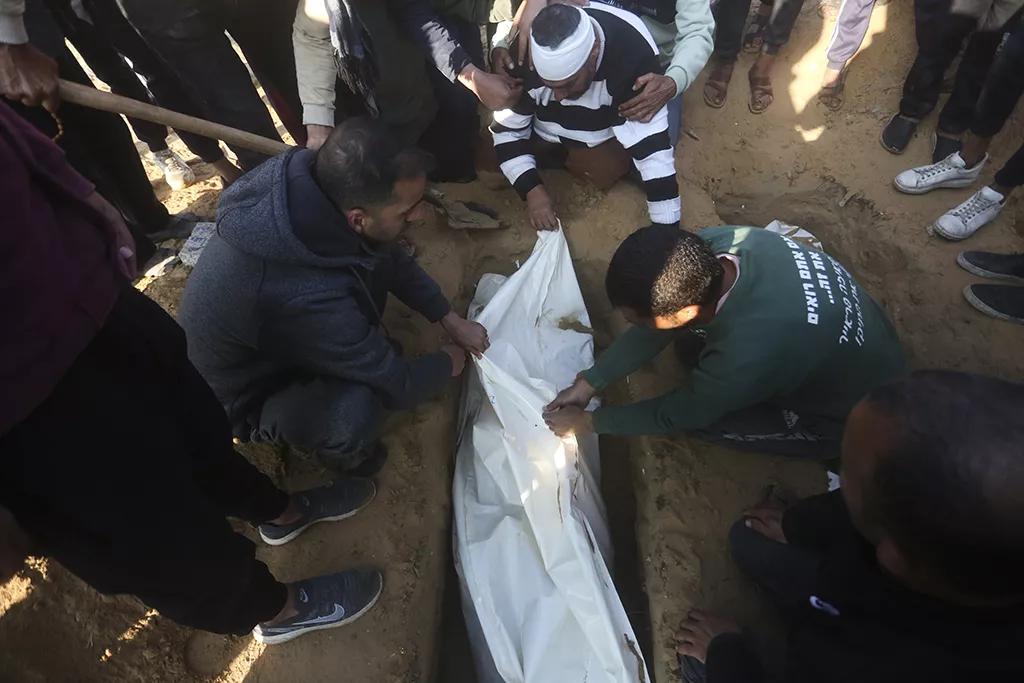
NEGOTIATIONS are moving — slowly, painfully — toward another temporary ceasefire in Gaza to allow for prisoner exchanges between Israel and Hamas. But before any halt in the destruction can be finalised, the Israeli Defence Forces are intensifying the terror of their assault on Gaza and solidifying their hold on Palestinian territories.
“The Israeli government is starving Gaza’s 2.3 million Palestinians,” Omar Shakir of Human Rights Watch charged on Monday.
Shakir is the Israel and Palestine director for the charity. Referring to the International Court of Justice’s order that Israel provide aid to Gaza, Shakir said: “The Israeli government has simply ignored the court’s ruling, and in some ways even intensified its repression, including further blocking lifesaving aid.”


